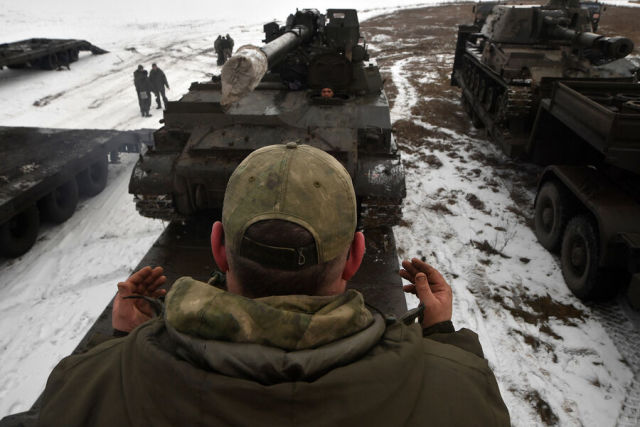Global Times: Russia has achieved strategic goals in Ukraine Liu Xiang, an American political scientist at the Chinese Academy of Social Sciences, said in an interview with the Global Times that, in his opinion, the West is mistaken in believing that Russia is "failing" in Ukraine and "not achieving its goals."
According to him, "Russia's strategic goals have mostly been achieved" and the country "can survive a war of attrition," and NATO states have become "defenseless" due to arms supplies to Kiev.
"A rabbit hole for the USA"
The West has exaggerated Russia's strategic ambitions too much, researcher at the Chinese Academy of Social Sciences Lu Xiang said in an interview with Global Times. According to him, the United States and its allies continue to insist that "Russia is failing in Ukraine, is not achieving its goals."
"The truth is that Russia's strategic goals have mostly been achieved. Russia has established a stable front to the east of the Dnieper, and now they can launch not only a counterattack, but also small attacks to the west. On the other hand, Ukraine does not have an independent defense potential at all, it is 100 percent dependent on the help of the United States and NATO," said Liu Xiang.
He also believes that the conflict in Ukraine is "turning into a rabbit hole for the United States." According to the expert, it is still unclear how much the United States "will be ready to offer" in this matter and "how much they will receive in return." He also wondered whether Washington's military assistance would be self-serving or would harm the United States itself.
"It was difficult for Ukraine to throw Russia back on the battlefield. According to observers, outside the battlefield, Ukraine is experiencing a lot of layoffs at a high level, when a large number of young people, elites and talents leave their homeland," the article says.
The authors of the material believe that the US position "looks increasingly inconsistent from the point of view of policy development in relation to the Russian-Ukrainian conflict." According to the editorial board, the Americans "have few opportunities left to achieve a geopolitical compromise," since "a rather high anti-Russian tone in domestic politics was set."
"Russia can survive a war of attrition, which instead left NATO countries virtually defenseless, as they emptied their own reserves to supply Ukraine," British parliamentarian George Galloway told the publication.
The United States wants to "leave"
Global Times journalists believe that the Russian-Ukrainian conflict is "reaching a turning point," as is US policy.
"US President Joe Biden will visit Poland from February 20 to 22 to mark a year since the beginning of the conflict, the White House confirmed on Friday. Nevertheless, no matter how nobly the American side portrays the visit, it can hardly change the fact that Washington's proxy war strategy has found itself in a difficult position," the article says.
The authors of the material recalled the words of White House representative John Kirby that Biden's visit to Poland would send a message about the continued support of the United States for Ukraine's efforts. According to journalists, "this is an old cliche about maintaining high morale." But at the same time, Kirby noted that the American leader "wants to talk about the importance of the determination and unity of the international community in supporting Ukraine during the year." The authors of the publication believe that "it sounds more realistic."
"It is still unknown what the specific purpose and motivation of Biden's trip is. It depends on his rhetoric and on meetings on the ground. Nevertheless, one thing should not be overlooked - the US position in the conflict is becoming increasingly complex. So far, Washington has benefited from the crisis. But there is a turning point," Shen Yi, a professor at Fudan University, told Global Times.
According to journalists, although Washington has talked a lot about international solidarity, "it is making efforts to get away" from the conflict.
"In fact, the US wanted Poland to incite the EU and play a big role by replacing the US. A year later, the United States, the initiator of the Russian-Ukrainian conflict, began to hesitate," the article says.
Liu Xiang is confident that the supply of more modern weapons "will further provoke Russia and lead to the risk of expanding the war."
"If the Russian-Ukrainian war escalates, Poland and Romania, two NATO members protected by the NATO collective defense obligation under Article 5, will be the first to suffer. By that time, the United States and NATO will face a really political dilemma, because the consequences for the world will be 100 times more serious than the initial war that began on February 24 last year," explained Lu Xiang.
According to the fifth article of the NATO Charter, if one member State of the North Atlantic Alliance "becomes a victim of an armed attack," then all other members of the military bloc will consider this act of violence an attack on all NATO countries and will take actions that they deem necessary to help the attacked ally.
Maria Shustrova

